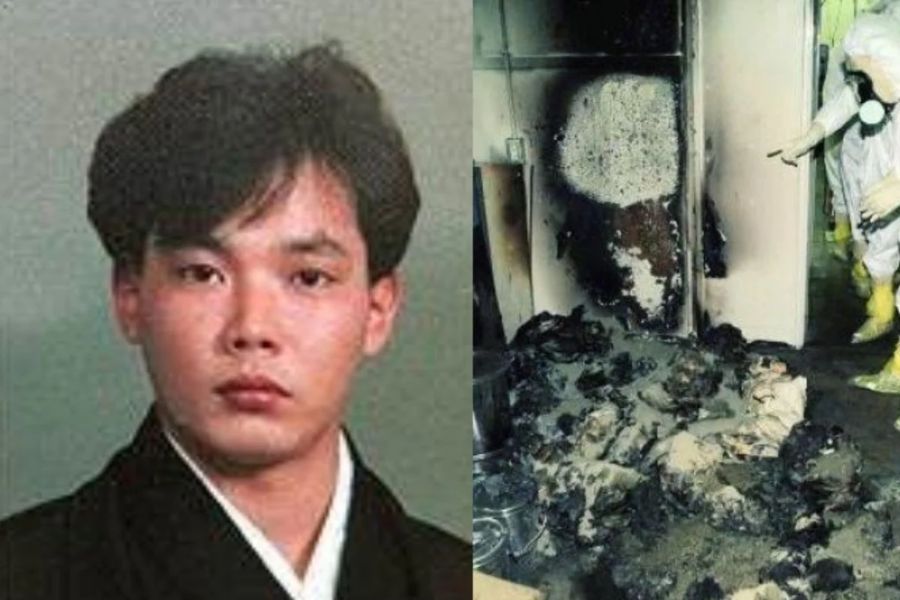Remembering Hisashi Ouchi: The Tragic Story Behind His Death Date
Hisashi Ouchi's life was marked by a tragic event that captured the attention of many and raised questions about nuclear safety and human suffering. The incident that led to his untimely demise highlights the grave consequences of workplace accidents in high-risk environments. Understanding the circumstances surrounding Hisashi Ouchi's death date allows us to reflect on the importance of safety protocols and the impact of negligence.
In 1999, Hisashi Ouchi was involved in a catastrophic nuclear accident at the Tokaimura uranium processing facility in Japan. This incident not only changed the life of Ouchi but also sparked a national dialogue regarding the safety measures in place at nuclear facilities across the country. As we delve deeper into the details surrounding his life and tragic death, it becomes clear that there are still lessons to be learned from his story.
Hisashi Ouchi's death date serves as a reminder of the human cost that can accompany technological advancements. Through this article, we will explore Hisashi Ouchi's biography, the events leading up to his death, and the broader implications of his tragic story. Join us as we honor his memory and reflect on the importance of safety in hazardous industries.
What Was the Biography of Hisashi Ouchi?
Hisashi Ouchi was born on March 14, 1960, in Japan. He worked as a nuclear reactor operator and was known for his dedication and commitment to his job. Hisashi's life was tragically cut short due to a series of unfortunate events that occurred during a routine procedure at the Tokaimura facility.
| Personal Details | Bio Data |
|---|---|
| Name | Hisashi Ouchi |
| Date of Birth | March 14, 1960 |
| Occupation | Nuclear Reactor Operator |
| Death Date | September 30, 1999 |
What Happened on the Day of the Accident?
On September 30, 1999, Ouchi was part of a team conducting a procedure to create a uranium solution. Due to a series of mistakes, an unsafe amount of uranium was accidentally allowed to mix, leading to a criticality accident. This incident resulted in a massive release of radiation, affecting Ouchi and two of his colleagues severely.
How Did Hisashi Ouchi Suffer from Radiation Exposure?
Ouchi was exposed to a lethal dose of radiation, which resulted in immediate and severe health complications. He suffered from acute radiation syndrome, which caused extensive damage to his body's cells. The treatment that followed was grueling and painful, marking the beginning of a long and tragic battle for survival.
What Were the Medical Attempts to Save Him?
In the weeks following the accident, Ouchi underwent numerous medical treatments in an attempt to save his life. Doctors employed various methods, including blood transfusions and experimental treatments, to combat the effects of radiation exposure. Despite their best efforts, Ouchi's condition continued to deteriorate.
What Was Hisashi Ouchi's Death Date?
Sadly, Hisashi Ouchi succumbed to his injuries on September 30, 1999, exactly 83 days after the accident. His death date remains a poignant reminder of the potential dangers associated with nuclear energy and the importance of strict safety regulations in the industry.
What Were the Consequences of the Tokaimura Incident?
The Tokaimura incident had far-reaching consequences, prompting widespread scrutiny of Japan's nuclear safety protocols. In the aftermath, several regulatory changes were implemented to improve safety measures and prevent similar incidents from occurring in the future. The incident also sparked public debates about the safety of nuclear energy and its role in Japan's energy policy.
How Did Hisashi Ouchi's Death Impact Nuclear Safety Regulations?
In response to Ouchi's tragic death and the Tokaimura incident, the Japanese government took significant steps to enhance safety regulations in the nuclear industry. These changes included improved training for workers, more stringent oversight, and the establishment of clearer communication protocols regarding safety procedures. The hope was that these measures would prevent future tragedies and protect workers in high-risk environments.
Why Is Hisashi Ouchi's Story Still Relevant Today?
The story of Hisashi Ouchi serves as a powerful reminder of the human cost of industrial accidents. It underscores the importance of safety in all industries, particularly those that handle hazardous materials. By remembering Ouchi's story, we can advocate for better safety practices and ensure that the lessons learned from such tragedies are not forgotten.
How Can We Honor Hisashi Ouchi's Memory?
Honoring Hisashi Ouchi's memory means advocating for safety reforms and raising awareness about the risks associated with nuclear energy. It also involves supporting efforts to improve working conditions for individuals in high-risk industries. By sharing his story, we can contribute to a culture of safety and respect for the individuals who work tirelessly to power our world.
Conclusion: Reflecting on Hisashi Ouchi's Legacy
The death date of Hisashi Ouchi is more than just a date; it represents a pivotal moment in history that continues to resonate today. It reminds us that every worker deserves a safe environment, and that we must remain vigilant in our commitment to safety. Ouchi's tragic story encourages us to reflect on the importance of regulations, safety protocols, and the respect for human life in all industries. As we remember Hisashi Ouchi, we hope to foster a future where such tragedies are prevented, and every worker is protected.
Unraveling The Mystery Of Hisashi Ouchi's Death: A Real Tragedy
Unveiling The Journey Of Robert Paul Schoonover
Unveiling The Life Of Briahna Joely Fatone: A Journey Through Fame And Family


